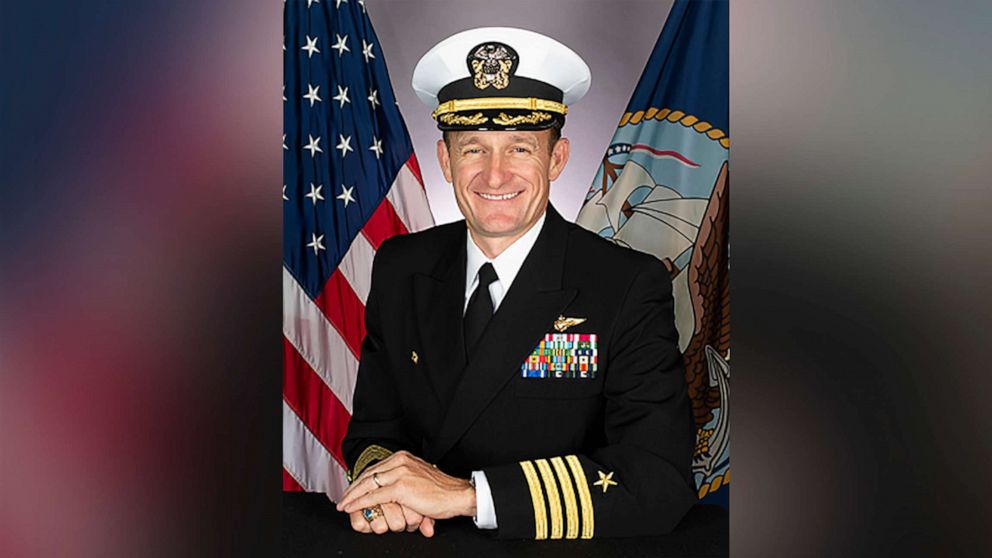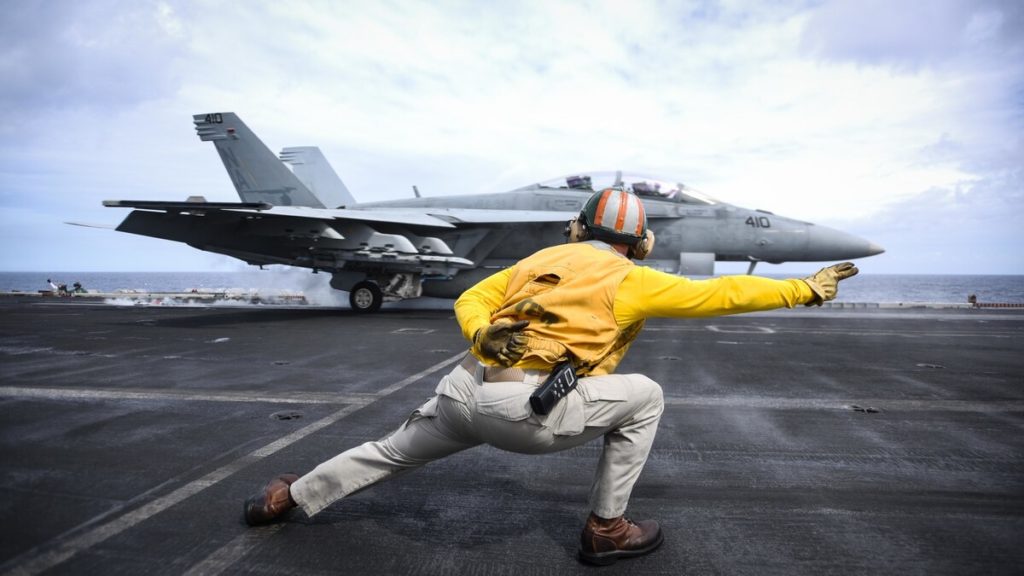
In deciding the fate of Captain Brett Crozier, the former commanding officer of the ill-fated Theodore Roosevelt, the Navy had several choices. Among them:
• It could fully exonerate Crozier and reinstate him as commander of the Roosevelt or put him in command of another ship.
• It could take administrative action against the Captain
• It could uphold the firing of Crozier, confirming that the actions of the Captain were wrong – that he is not fit for command – effectively ending his Navy career.
After Navy Captain Brett Crozier, commander of the aircraft carrier Theodore Roosevelt, pled for assistance in evacuating his coronavirus-exposed sailors off the ship and into quarantine; after he was removed from command for taking this action; after he was denigrated, called “too stupid to be a commanding officer” of the Roosevelt, even accused of “betrayal” by the Acting Secretary of the Navy; after the Captain himself contracted coronavirus and after at least 840 sailors have tested positive for the virus (more than 15 percent of the crew) and after a relatively quick investigation, Navy top officials have recommended that Capt. Brett E. Crozier be restored to command of the aircraft carrier Theodore Roosevelt. In other words to fully restore his honor.
According to the New York Times, Admiral Gilday and James McPherson, the acting Navy secretary who succeeded Thomas Modly “reached agreement late last week that the events leading to Captain Crozier’s letter pleading for help showed that he should not have been removed.”
It is now up to Defense Secretary Mark T. Esper to also do the right thing.
The Secretary has received the recommendation but has asked for more time to sign off (or not) on the reinstatement of the captain of the nuclear-powered carrier.
Again, the Times, “Esper’s decision to hold up the investigation has surprised Navy officials, who believed that the defense secretary would leave the process in the hands of the military chain of command.”
Then, there is the unpredictable commander in chief.
We will keep you posted.
This is what we knew a couple of weeks week ago:
Contrary to initial reports (and blame attributed), the once-firm belief that the COVID-19 virus “meandered” on board the Theodore Roosevelt during a March 5-8 port call to Danang, Vietnam, has now been “called into question – and potentially debunked.”
Those reports claimed the virus may have been brought on board by sailors who stayed at a hotel in Danang, where two British nationals who had also stayed there at the time tested positive for COVID-19.
However, each of the 30 sailors who stayed at the hotel tested negative for the virus.
Eight sailors “who first tested positive did so over the course of March 24 and 25, more than two weeks after the ship departed Da Nang — a time period in excess of the virus’ incubation.”
According to a Wall Street Journal report Wednesday, “Navy officials now believe the outbreak on the carrier Roosevelt was initiated by the ship’s routine flight operations.” That is, the virus may have been brought on board by “numerous carrier on-board delivery flights originating in Japan, the Philippines, and Vietnam [that] occurred in the days following the ship’s departure from Da Nang.”

An F/A-18F Super Hornet launches from the flight deck of the aircraft carrier Theodore Roosevelt.(MC3 Alex Corona/U.S Navy via Navy Times)
When the Roosevelt docked in Guam on March 26, “the hulking ship was already being ransacked by the outbreak of an invisible enemy.”
The next day, the Theodore Roosevelt commanding officer, Capt. Brett Crozier, penned the now-famous letter, raising alarm over the uncontrolled contagion aboard his ship and asking for help in evacuating most of the sailors off the ship. Crozier wrote: “We are not at war. Sailors do not need to die…If we do not act now, we are failing to properly take care of our most trusted asset — our Sailors.”
It has now been reported that former Acting Secretary of the Navy Thomas Modly who flew to Guam (at an airfare tab of $243,151.65 to the taxpayers) to berate Capt. Crozier, took the trip before formally asking for a waiver to the policy that limits “senior officials to one air crew per trip to curb the cost of travel by military aircraft”
As to who made the decision for the Roosevelt to stop in Vietnam, a decision strongly criticized by Trump after-the fact while still holding “arena-sized rallies,” it was made “by high-ranking Pacific military officials,” according to The Stars and Stripes.
Former Secretary of the Navy Ray Mabus (2009 to 2017) has said the Navy should bring all its ships into port and quarantine the majority of the crews while the vessels undergo a deep clean — or else face a COVID-19 outbreak similar to the one aboard the aircraft carrier Theodore Roosevelt, according to the Navy Times.
















